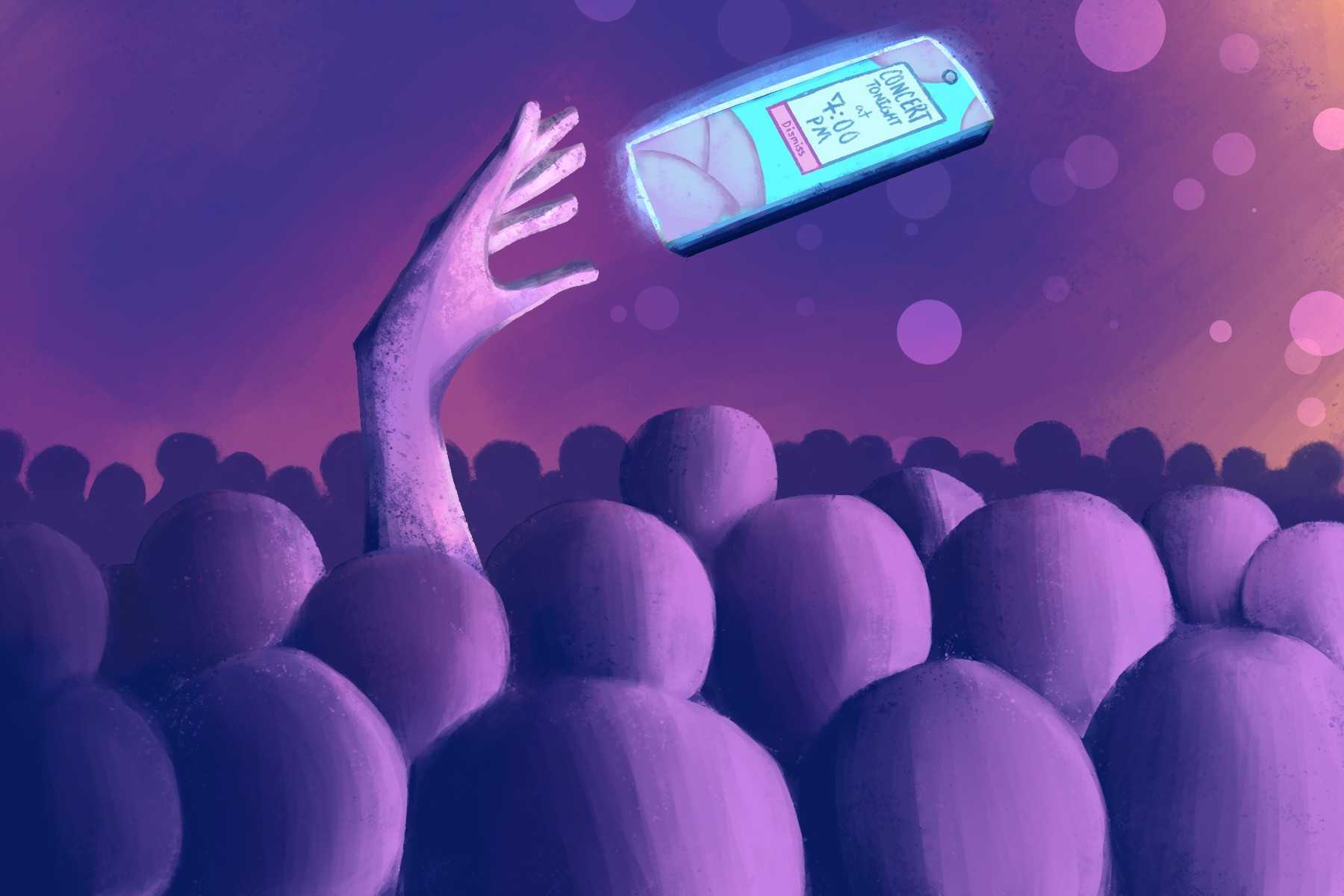When is it appropriate to throw something at a performer on stage? Most would agree that the answer is never. While the answer seems obvious, it appears that few people these days have a sense of respect for live performers, not to mention good old-fashioned public decency. In the aftermath of the COVID-19 pandemic, fans have come up with strange ways to demonstrate their excitement for the return of touring. Though many of the “rules” for concert etiquette are unspoken, it seems that more and more people have stopped treating the experience of live music as a privilege.
Within recent months, it seems like every day brings a new report of an artist having objects thrown at them — often hitting, injuring, or at least startling them. Not only do fans risk harming the performers, but these stunts put the whole of live music at risk.
The rapid increase in fans throwing projectiles seems to have begun at Bebe Rexha’s New York City concert on June 18. Toward the end of Rexha’s show, a fan hurled their cell phone toward the stage, hitting the singer in the face with force. Rexha fell to her knees after being hit and was immediately rushed offstage. After making her way to the hospital, she reportedly needed three stitches in her forehead, later sharing a photo to social media with the caption, “Im good.” According to the New York Post, the fan responsible for throwing the phone faced assault charges and “was freed without bail following an arraignment,” ultimately being “ordered to stay away from Rexha.”
Singer Ava Max also suffered a recent eye injury after a fan made their way onto the stage on June 20, rushing up to Max and slapping her even while being dragged offstage by security guards. This incident goes beyond the events of Rexha’s concert, demonstrating just how willing fans are to disregard an artist’s personal space or boundaries. Fans have been foolishly making their way onto stages for decades, which is frightening enough for an artist. Things become even more alarming when the artist’s physical safety is impacted.
Unfortunately, these incidents were not restricted to just a few artists. Lady Gaga, Harry Styles, Kelsea Ballerini, Kali Uchis, Rosalía, Drake, P!nk and Taylor Swift have all been on the receiving end of airborne items over the last year. After being hit in the eye by a bracelet at her June 28 concert, Ballerini wrote to her followers online, “we all have triggers and layers of fears way deeper than what is shown, and that’s why i walked offstage to calm down and make sure myself, band and crew, and the crowd all felt safe.”
For years, venue staff have taken the tops off water bottles to prevent the caps from being thrown. Simple plastic bottle caps seem to be out of fashion now — apparently stuffed animals and skittles bags make much more exciting projectiles.
Harry Styles’ shows are known for interactions with crowd members, which has caused many attendees to assume that anything goes. Strange signs, wild costumes, and projectiles have all found their way into the singer’s “Love On Tour” shows around the world — all attendees hoping to be acknowledged by Styles, and thus earn lifetime bragging rights (and a viral clip). The strange competition that seems to be taking place, as fans vie to be the one responsible for a viral moment or some acknowledgment from the artist, could very well be a driving factor behind this outlandish behavior.
Social media is also a likely contributor to this lack of concert etiquette. In many ways, fans have never felt closer to the artists they listen to. Social media (particularly TikTok) has enabled the masses to develop parasocial relationships with the people they see on their screens every day. For those unfamiliar with the term, parasocial relationships are “one-sided relationships, where one person extends emotional energy, interest and time, and the other party, the persona, is completely unaware of the other’s existence,” according to the National Register of Health Service Psychologists. When people see an artist in person after years of following them from afar, some sort of hysteria seems to take over, pushing the fans to act out. Achieving a brief moment of virality online after an interaction is considered a win, even if the interaction is a negative one.
In a less aggressive but equally obnoxious example, Taylor Swift’s “The Eras Tour” has been a regular site for fan screech-alongs that often continue throughout Swift’s entire show. Not only are many doing everything they can to be the loudest fan in the stands, they’re also sharing recordings of this for the masses to see. Of course, any fan has the right to sing along at a concert, but when your singing begins to impact the experience of those around you, a line has been crossed. For the unlucky few rows around these obnoxious fans, the hundreds of dollars they spent to hear Swift sing are washed down the drain because of inconsiderate screaming.
In a diametrical occurrence, Joni Mitchell’s return to the stage at Washington State’s Gorge Amphitheater was marked by a refreshingly respectful audience that listened intently and soaked up every moment of the show. Granted, the demographic at a Mitchell show is different than that of a Swift show, but the performance at the Gorge should be the precedent for excited fans who want to respect the experience of those around them. The performance was Mitchell’s first announced show in 20 years, making it a highly anticipated evening. Nonetheless, no fans threw objects at Mitchell to flaunt their devotion to her. Mitchell’s Gorge performance is a glimmer of hope, assuring the rest of us that concert etiquette may still exist.
The moral of the story: live music is a privilege, not a right. If fans continue to make music venues the setting for surprise airstrikes, fewer artists will want to tour and present themselves in front of fans. The insatiable need for 15 minutes of fame has never been more palpable than it is now. The decline of concert etiquette and the lengths to which people will go to achieve recognition or virality are becoming more frightening and dangerous each day. The scary truth is that the more artists are harmed at their own shows, the more likely it is that live music will come to an end. If you truly love and respect whoever may be on stage, do the artist and the audience a favor by keeping your things out of the air and your voice at a reasonable decibel.

















